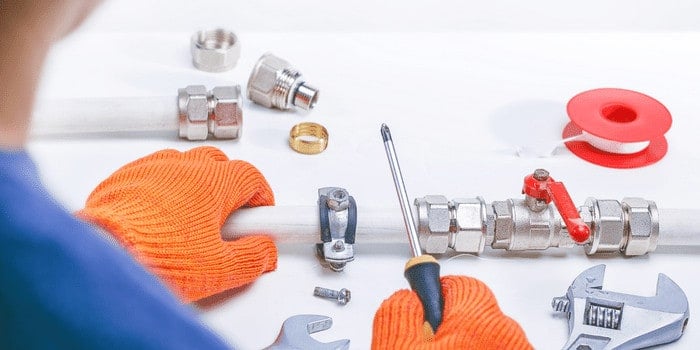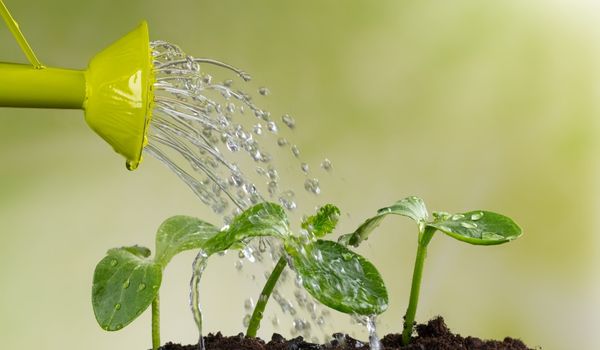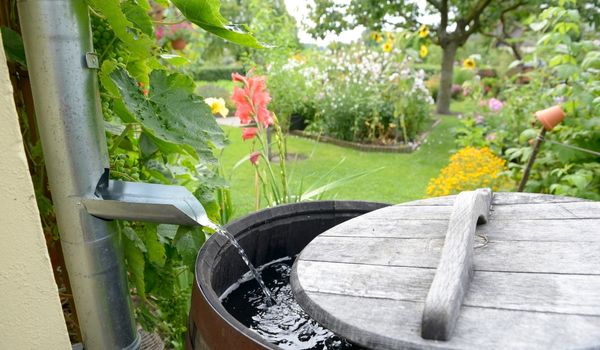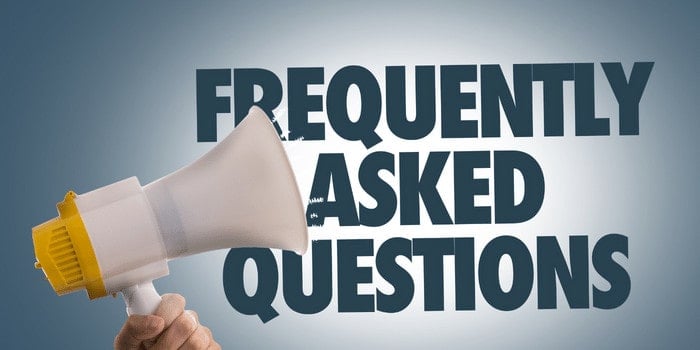
It’s gentle on skin, keeps your shower spotless — and protects appliances from scale. But if you’re using softened water on your garden or houseplants, you might be giving them a little more salt than they bargained for.
While it won’t instantly kill your begonias, it can throw off soil balance over time — especially in pots and raised beds. Let’s break down why that happens, which plants are most at risk, and how to keep your greenery happy without ditching your softener.
🌱 Key Takeaways
- 🧂 Soft water contains salt, which can build up in soil and block nutrient absorption
- 🥦 Most plants do better with hard water, which contains natural minerals like calcium and magnesium
- 🌿 Sodium-sensitive plants may show stunted growth or leaf burn with frequent soft water use
- 💡 There are simple workarounds — like rainwater collection, using outdoor taps, or switching to potassium-based softening
🌼 Soft Water & Plants: Pros, Cons, and Reality

Using softened water on plants isn’t ideal — but it’s not instant plant doom either. A few waterings won’t ruin your garden, but repeated use can lead to long-term soil issues.
Here’s the real story behind the tradeoffs:
✅ What Might Be Okay
- 💧 Safe in a pinch – A few waterings won’t hurt most outdoor plants, especially in well-draining soil.
- 🪴 Low-risk for salt-tolerant species – Some plants (like succulents or rosemary) can handle a bit more sodium.
- 🌱 Potassium-based softeners are plant-friendly – Potassium is a nutrient, not a toxin.
⚠️ What to Watch Out For
- 🧂 Sodium stress – Salt disrupts root hydration and nutrient uptake over time.
- 🪨 Mineral deficiency – Hard water minerals like calcium and magnesium support healthy growth.
- 🧃 Soil imbalance – Sodium buildup can degrade structure and reduce water penetration.
- 💸 Wasted water treatment – Why pay to soften water for the lawn?
💡 Pro Tip: If you’re using a traditional salt-based softener, consider switching to a salt-free system to protect both your home and your landscape.
💧 Alternatives to Watering Plants with Softened Water

You don’t have to choose between healthy plants and scale-free pipes. If your plumbing is hooked up to a salt-based softener, there are still plenty of ways to give your garden the minerals it craves — without undoing all the work your system is doing indoors.
Here are some smart ways to keep your plants happy and avoid sodium buildup in the soil:
🔁 1. Bypass Your Softener
Most modern systems include a bypass valve, which lets you temporarily divert water around the softener. Flip the valve when it’s time to water your lawn or garden, then switch it back once you’re done.
💡 Not sure how to do it? Here’s a guide on how to bypass a water filter system.
🚿 2. Use an Untreated Outdoor Spigot

The easiest long-term solution? Install a dedicated outdoor faucet that pulls water straight from the main line before it’s treated. That way, your irrigation stays mineral-rich — and your home stays scale-free.
🌱 Bonus: This setup saves wear and tear on your softening system and cuts down on salt use.
🌧️ 3. Collect Rainwater

Rain is nature’s plant food — and it’s totally free. Place a few buckets outside or install a simple rain barrel system to gather water during storms.
✅ Rainwater contains trace nutrients, has a plant-friendly pH (~6.2–6.8), and helps replenish soil microbes naturally.
🧂 4. Switch to Potassium Chloride
If your current softener runs on sodium chloride, switching to potassium chloride is an easy way to cut the salt without losing water protection. Potassium actually benefits plant growth, so it’s a far safer alternative.
💡 Heads up: Potassium pellets cost more, but they’re safer for plants, people, and pets — especially when you’re watering frequently.
🚫 5. Soften Only Hot Water
Since most cold water uses don’t require softening, you can re-plumb your system to only treat hot water lines. That leaves your cold taps — including outdoor hoses — rich in beneficial minerals.
🚰 6. Mix with Distilled or RO Water
For houseplants, cutting softened water with distilled or reverse osmosis water helps dilute sodium levels. It’s not practical for outdoor watering — but for indoor pots, it can make a big difference.
💡 You can learn more about ideal water hardness levels here if you’re unsure whether your home really needs full softening to begin with.
💬 Common Questions About Soft Water & Plants

🧪 What about chlorine?
If your water comes from a municipal supply, it may contain chlorine or chloramine. Most plants can handle small amounts, but if you’re watering delicate species or starting seedlings, let the water sit out for 24 hours or run it through a basic carbon filter to remove it.
🥬 Is it safe to eat veggies grown with soft water?
Yes — produce grown with softened water is still safe to eat. But over time, the soil may become nutrient-poor or overly salty, which can affect yield more than safety.
🌿 Can I fix soil that’s already been affected?
Absolutely. Flush the area with untreated water (called leaching) over a few weeks to reduce sodium. Then amend the soil with compost or minerals as needed to restore balance.
 147 people found this helpful. Was this guide helpful to you?
147 people found this helpful. Was this guide helpful to you? 

